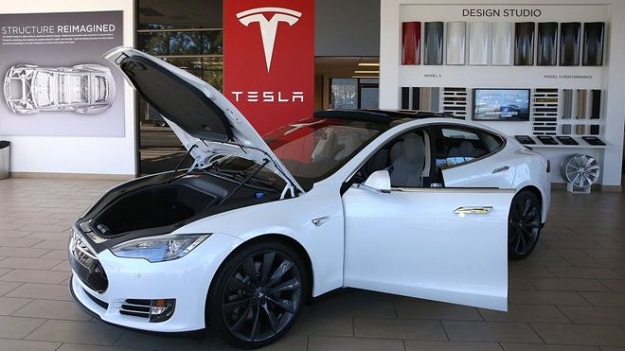
Tesla announced the bid in late June, but it drew jeers on Wall Street, in part because of skepticism over the motives of Tesla chief executive Elon Musk, who is also chairman of SolarCity as well as its biggest shareholder.
Elon Musk 'master plan' expands Tesla into trucks, buses and car sharing
Some analysts also questioned whether the deal, which still requires shareholder approval from both companies, would divert Tesla's attention from an ambitious plan to significantly expand electric-car production in the next few years.
But Tesla argued the combination would meet the needs of a growing portion of consumers who are environmentally focused and will be drawn to the opportunity buy their car from the same company that would install a solar-powered fueling station at their homes.
Tesla said that the buyout would also enable it to achieve lower hardware and marketing costs and boost manufacturing efficiency, creating the "world's only vertically integrated sustainable energy company," it said in a statement.
"There is natural parts integration here where there isn't for gasoline and cars," said Musk. "You don't want the gas station at your house."
The all-stock transaction values SolarCity at $25.37 a share, below the original range discussed in June of between $26.50 and $28.50 a share.
The agreement allows SolarCity to solicit alternative proposals for 45 days.
The boards of directors of each company have signed off on the deal. However, the agreed acquisition requires approval from a majority of shareholders of both companies.
Porsche's electric car can take over Tesla
Musk, who holds 21.1 per cent of Tesla and 22.5 per cent of SolarCity, will not be able to vote as a shareholder on the deal.
Musk has announced an ambitious goal of producing 500,000 electric cars a year by 2018, which would take it from being a niche producer of luxury sedans to a mainstream competitor in the auto industry. Skeptics have questioned those targets.
Tesla reported a loss of $282.3 million in the first quarter and has had annual losses the last five years. SolarCity lost $21.5 million in the first quarter and also has a record of annual losses.
"It's combining two companies that are cash-flow negative," said Efraim Levy, analyst at S&P Global Market Intelligence. "That creates the potential for dilutive capital raises."
While there is some strategic logic over the long-term, the deal likely dims the chances of Tesla turning a profit in the near term, he said.
"If you're buying (Tesla) on the anticipation of it becoming profitable, or big-time profitable, in the next few years, this is going to set back your plan, if they ever become profitable," Levy said.
SpaceX to try again to send docking ring for space taxis to station
But Trip Chowdhry, analyst at Global Equities Research, said Tesla's vision is to "create a whole new industry" akin to Amazon, which lost money for years. Profitability is not the most important factor in evaluating Tesla, he said.
"When you create an industry, you only win because of speed," Chowdhry said.
SolarCity shares tumbled 7.4 per cent to $24.72, while Tesla lost 2.0 per cent at $230.01






1732347751-0/Express-Tribune-(1)1732347751-0-270x192.webp)


1732264554-0/Copy-of-Untitled-(68)1732264554-0-270x192.webp)







COMMENTS
Comments are moderated and generally will be posted if they are on-topic and not abusive.
For more information, please see our Comments FAQ